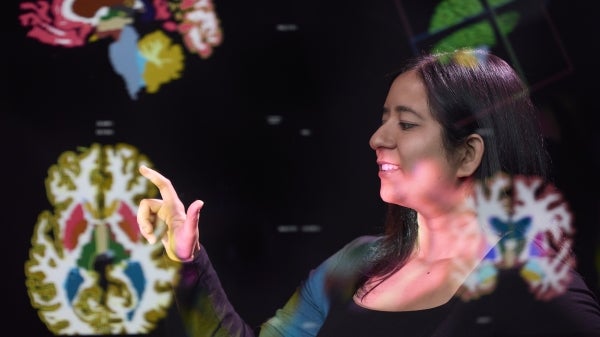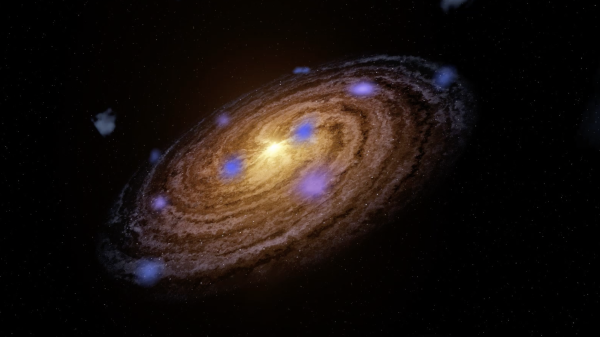Computer science empowers ASU grad to make big impacts

Ananay Arora earned a master's degree in computer science as part of the accelerated master's degree program while working on impactful extracurricular projects.
Editor’s note: This story is part of a series of profiles of notable spring 2023 graduates.
When Ananay Arora taught himself to code at age 11, he had no idea where that would take him. The years since, especially his time at Arizona State University, have been full of rewarding and memorable experiences.
During his undergraduate studies in the Ira A. Fulton Schools of Engineering at ASU, Arora was highly involved outside of the classroom, which earned him a Spring 2022 Impact Award. While completing his master’s degree in the year since as part of the accelerated master’s degree program, Arora continued to apply his skills in a variety of opportunities.
The Google Developer Student Club has been an outlet for Arora to share his passion for software development. Arora founded the club as an undergraduate student to help others learn to develop software and apps. Over the last four years, during which Arora served as president, it has grown to more than 1,000 members.
“My one-hour, bite-sized sessions have helped students discover their passion within software engineering,” Arora says, “and helped them get started with a field that they didn’t know they liked.”
Arora advanced his skills as a graduate research assistant in the ASU Luminosity Lab. One memorable project he worked on was the Guardian Balloons, a collaboration with Scottsdale-based safety technology company Axon to revolutionize security for the 21st century.
“We got to work with Scottsdale police and deploy our project at the Waste Management Phoenix Open and ASU Homecoming,” Arora says.
Luminosity Lab Director of Strategic Projects Mark Naufel, Director Tyler Smith and Academic Associate Lewis Ruskin were all instrumental in Arora’s continued growth, providing support for his interdisciplinary leadership skills, technical skills and getting things done under pressure as well as general mentorship.
“Together, they’ve worked really hard for me to get a chance to work and lead projects with big corporate companies, giving me a lot of exposure and valuable experience,” Arora says.
Arora has worked for several high-profile companies, developing apps for Zoom, designing telehealth solutions for Phoenix Children’s and interning for Apple in Cupertino, California. He has even presented his work to Taranjit Singh Sandhu, the diplomatic ambassador of India to the United States.
Now he’s looking for new opportunities at startups and other companies. He plans to stay in Arizona “because it’s such an amazing place to be.”
“Long term, I want to be an entrepreneur and make a difference in the software engineering industry,” Arora says. “My software engineering experience at Apple, Luminosity Lab and others have inspired me to solve engineering problems that could potentially be a really great business idea.”
The Fulton Schools had a great impact on Arora, from collaborating and innovating with the other talented students he has met to using the many resources available to ASU students. Today, he’s ready to move on after leaving his own legacy of impact on the Fulton Schools community.
Read about other exceptional graduates of the Fulton Schools’ spring 2023 class here.
More Science and technology

Podcast explores the future in a rapidly evolving world
What will it mean to be human in the future? Who owns data and who owns us? Can machines think?These are some of the questions…

New NIH-funded program will train ASU students for the future of AI-powered medicine
The medical sector is increasingly exploring the use of artificial intelligence, or AI, to make health care more affordable and…

Cosmic clues: Metal-poor regions unveil potential method for galaxy growth
For decades, astronomers have analyzed data from space and ground telescopes to learn more about galaxies in the universe.…